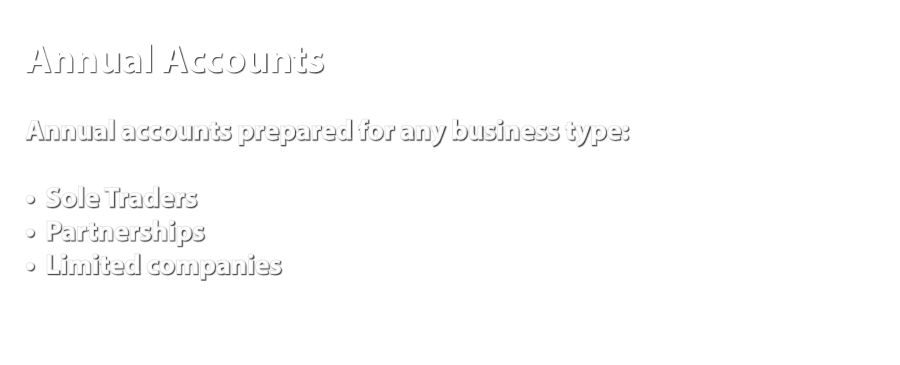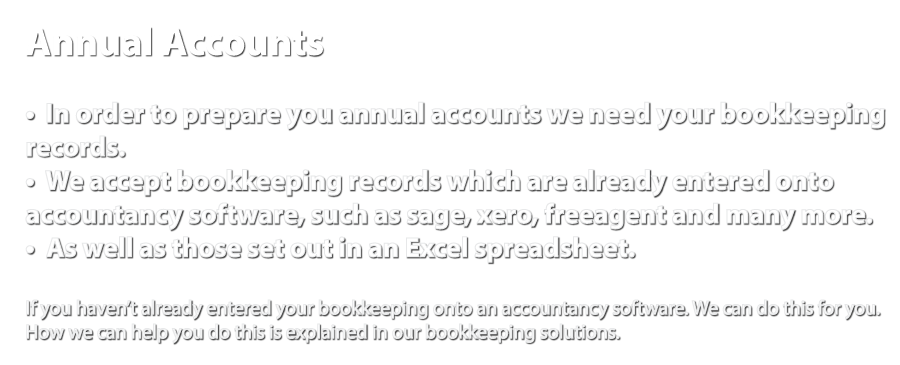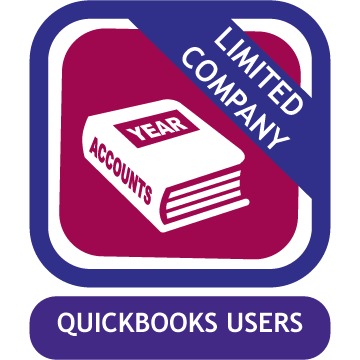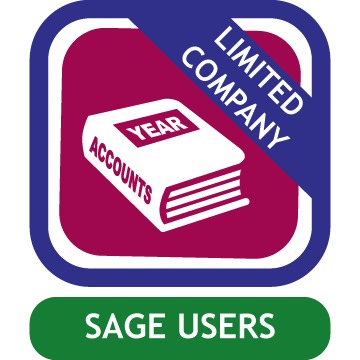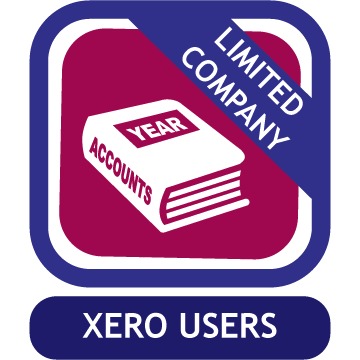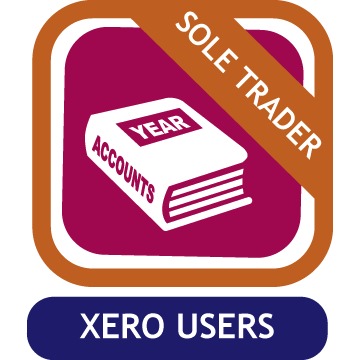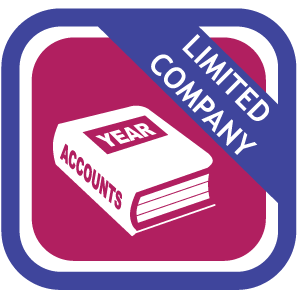
Product filters
To search for the specific products related to your business apply the follow filters:
At a glance
Annual Accounts
We have transformed traditional accountancy services by developing a range of transparently priced accountancy products; whilst maintaining the integrity of
the professional relationship with a clearly defined description of what you
get for your money at a fixed retail price.
Now for the first time you are able to compare accountancy
services on both a clear value benchmark, which evaluates quantity and quality
of work done along with price.
Our Chartered Accountants are able to prepare annual
accounts for the following business types:
- Sole trader
- Partnerships
- Limited Companies
What are
year-end annual accounts?
Annual accounts are sometimes referred to as an annual
report, trading accounts or financial statements. The annual or year-end accounts are a summary
of all the entities transactions in a 12 month period which is usually referred
to as the financial trading period.
They give a clear picture of both the trading
activity of the business over a 12 month
period through the profit and loss account, whilst the balance sheet gives a
clear snapshot of the business finances on the last day of that period.
Annual accounts are
probably the most common accountancy service which a business asks an
accountant to perform
Annual accounts are probably the most common accountancy service which
a business asks an accountant to perform.
Who has to
prepare annual accounts?
Be it a sole trader, partnership or limited company, the need for
year-end annual accounts is common to all 3 different entities. Annual accounts
are the product of the businesses bookkeeping records.
What is a trial
balance?
The bookkeeper brings together all the entries
in the different ledgers which make up the books whether this is kept on paper
books, spreadsheets or accounting software. It includes sales invoices, purchase
receipts, bank payment and cash payments, into an accounting document called a
trial balance. The trial balance is passed from the bookkeeper to the
accountant and this forms the basis for the yearend annual accounts. It is basically a summary of all the totals
in the accounting records and should balance with how the business was funded
whether through sales income or capital invested.
Are year end and
annual accounts different?
Both Annual accounts and year-end accounts are the same
thing, as are annual reports, trading accounts and financial statements.
What information should be in the annual accounts?
Generally speaking but not always, annual
accounts should include;
-
Profit and loss account or
income expenditure statement
- Balance sheet
- Fixed asset and depreciation schedule
-
Accountants report
-
Signature of proprietor/partner/director
- Directors report
- Notes to the accounts
- Officials
and directors information
What is the purpose
of preparing annual accounts?
Annual accounts provide an annual (year-end) summary of the businesses
financial performance. This can provide
essential information on how well or how badly the business is performing.
Additionally, every business has a legal requirement to
report their key financial data to HMRC and for limited companies the additional
requirement to file accounts with the Register of companies at companies house.



